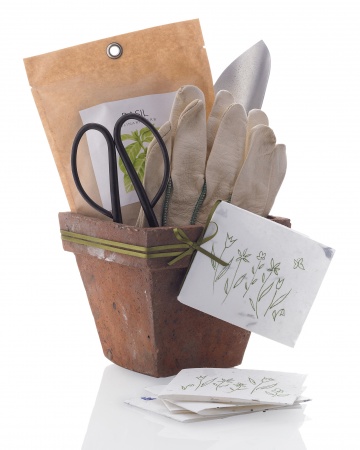

More than a billion colds wallop the United States every year, setting off a storm of sneezes, sniffles, aches, and pains. The flu, meanwhile, waylays tens of millions of Americans with fever and fatigue each winter. Although it's nearly impossible to escape exposure, you can take steps to stop those dreaded viruses from knocking you out this season. First, make sure you are doing these three things:
1. Build up your immune defenses with a plant-based diet high in vitamin C (think kiwi, citrus, and
broccoli
), stay hydrated and drink
green or black tea
, both shown to aid the immune system.
2. Become slightly germ-obsessed, at least for the winter months. Wash your hands and wipe down kitchen and office surfaces as often as you can.
3. Be sure to get plenty of rest and relaxation; chronic stress and sleep deprivation are both known to wear down your immunity.
Then, when a cold or flu does strike, act fast. No matter what you use as treatment, start taking it right away, as viruses duplicate within the first 48 hours of symptoms. Here, our experts list their choices for the best ways to keep colds and flu at bay. All are available at natural-foods stores; a few you might already have in your kitchen.
Experts
Dr. David Rakel, director of the University of Wisconsin integrative medicine program; Dr. Tieraona Low Dog, director of education for the University of Arizona's program in integrative medicine; Steve Gomberg, a Los Angeles-based herbalist, acupuncturist, and nutritionist
1. Echinacea
Antiviral and antibacterial, the traditional Native American remedy contains polysaccharides that can raise levels of infection-fighting white blood cells, among other functions. To reap those benefits, Low Dog recommends getting 3 grams of Echinacea purpurea (a well-studied species) daily when you're sick, reducing the dose as you start to feel better. "The only people who should be careful about dosage are those who have severe allergies to the aster family of plants," she says. "There's clear controversy over echinacea, but I've used it in my practice for 25 years and found it very effective when taken correctly." In fact, a recent meta-analysis in Lancet Infectious Diseases came out in favor of using the herb.
2. Astragalus
A member of the pea family, this root can be stirred into soups to bolster your immune system during cold and flu season. If you feel a cold coming on, Rakel recommends taking 2 to 6 grams of astragalus in capsule form daily. "It seems to work mainly through antiviral properties and appears to have a beneficial influence on T-cell activity, which is one of the important immune modulators," he says. Indeed, a 2006 study from Phytotherapy Research found that astragalus triggered even more activity in one class of T-cells than echinacea when given to a group of 16 healthy adults.
3. Yin Chiao
At the first sign of sickness, practitioners of Traditional Chinese Medicine often prescribe a formula that contains nine cold- and flu-countering herbs. Yin chiao (also spelled qiao) blends commonplace botanicals like licorice (said to heal sore throats and suppress coughs) and peppermint (known to relieve stuffiness) with lesser-known herbs like schizonepeta and reed rhizome. "It's especially helpful for colds that have sore throat as a predominant symptom, says Gomberg. Try taking 60 drops of the tincture in water every two or three hours for the first two or three days of a cold; for tablets, check the dosage on the box and take frequently.
4.
Garlic
A 2001 study discovered that participants who popped a garlic supplement daily from November to February were less likely to get colds than those who took a placebo. But Low Dog suggests going for the fresh herb, both in preventing and banishing colds. "Crushing up a clove, mixing it with olive oil and lemon juice, and putting it on your
salad
is something easy for people to do every day," she says. When you're sick, Gomberg recommends downing at least three cloves of garlic daily. Besides salad dressing, try mashing up a clove and spreading it on toast; eating a few sprigs of parsley afterward will help stave off garlic breath.
5. Elderberry
So sweet it's sometimes used in jams and lemonades, elderberry is packed with quercetin (an antioxidant with antihistamine and anti-inflammatory properties). This native European, Asian, and North American plant may also help activate the immune system, according to a 2001 study from Jerusalem's Hadassah University Hospital. The extract tested is Sambucol, a black elderberry syrup recommended by Low Dog. "It tastes great, and it's easy to get kids to take," she says. "The research suggests that if you take 1 to 2 teaspoons four times daily for three to four days when feeling sick, it can shorten the severity and duration of the flu." Sipping elderberry tea can also soothe flu symptoms, adds Gomberg.
6. Andrographis
Long used in traditional Indian and Chinese medicine, this herb revs up the activity of natural killer cells (the immune system's first line of defense against infection). And when paired with Siberian ginseng (also known as eleuthero), andrographis may attack the flu more effectively than some antiviral drugs. "Andrographis is one of the natural cold and flu remedies with the most promising scientific evidence for its efficacy," says Rakel, who recommends taking 400 mg three times daily as soon as your symptoms appear.
7.
Ginger
So far, most ginger research has focused on the herb's ability to tame nausea in pregnant women, post-op patients, and motion-sickness-prone travelers. But the pungent root can also act as an antihistamine and decongestant, two cold-easing effects embraced by Chinese herbalists for millennia. Tossing some fresh, chopped ginger into your stir-fry or soup can lessen cold symptoms, as can making a strong cup of ginger tea. Try the following simple tea recipe from Low Dog: Shave the skin from a piece of fresh ginger, cut off about 2 inches, then slice it up and drop it into 2 cups of water. Simmer the mixture for about 20 minutes (uncovered), pour it into a tea mug, add a tablespoon of honey and juice fresh-squeezed from half a lemon, and drink it down. "Ginger is perfect when you are really congested or you've got the chills," says Low Dog. "The only time I would not use it is when someone's throat is really red and inflamed, such as in the case of strep."
8. Olive Leaf Extract
Heart-healthy olive oil
isn't the only gift bestowed by the Mediterranean's most treasured trees. Anti-inflammatory and antimicrobial, olive leaf extract interacts with the protein in cold and flu virus particles to halt infection, according to a report published in Alternative Medicine Review last March. Although it's available in capsule form, Low Dog likes the versatile, easy-to-use liquid extract. "If you put three to five drops in warm water, it makes a great gargle for sore throat," she notes.
9. Oscillococcinum
As with any type of homeopathic medicine, oscillococcinum aims to restore health by delivering a highly diluted dose of a substance that produces symptoms characteristic of the illness being treated. Here, that substance is extract of muscovy duck heart and liver, identified by homeopaths as reservoirs of the influenza virus. A 1998 study from the British Homeopathic Journal gave either oscillococcinum or a placebo to 372 patients with the flu, finding that the remedy both lessened their symptoms and shortened the duration of sickness. If you're intrigued by the "like cures like" approach to wellness, Gomberg recommends using one or two tubes of oscillococcinum once or twice weekly for the flu, in combination with other immune-enhancing supplements (such as echinacea or elderberry).
10. Medicinal mushrooms
Chinese and Japanese healers have understood the magic of mushrooms for centuries, using
shiitake
, reishi, maitake, and others to both prevent and treat a variety of ailments. Western researchers have yet to explore medicinal mushrooms' impact on colds or flu, but several studies have shown that certain friendly fungi can stimulate immune function. Medicinal-mushroom blends, available at natural-foods stores, can be taken for illness prevention, says Gomberg; start early in the season for best results, and follow package instructions. And reishi mushrooms may help treat acute cold symptoms, he adds.























